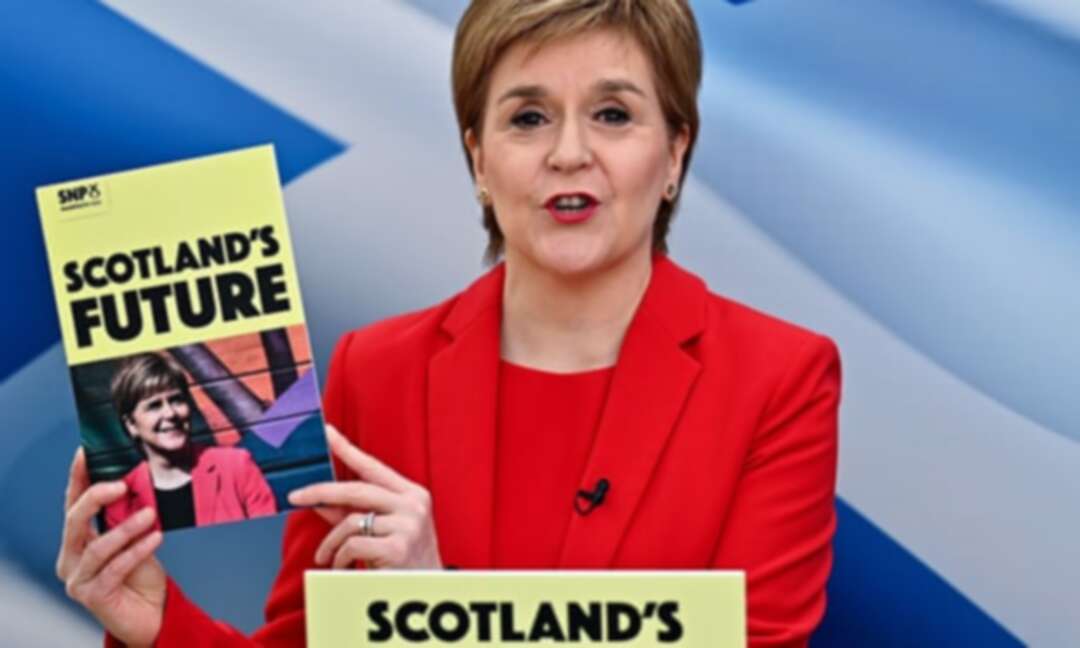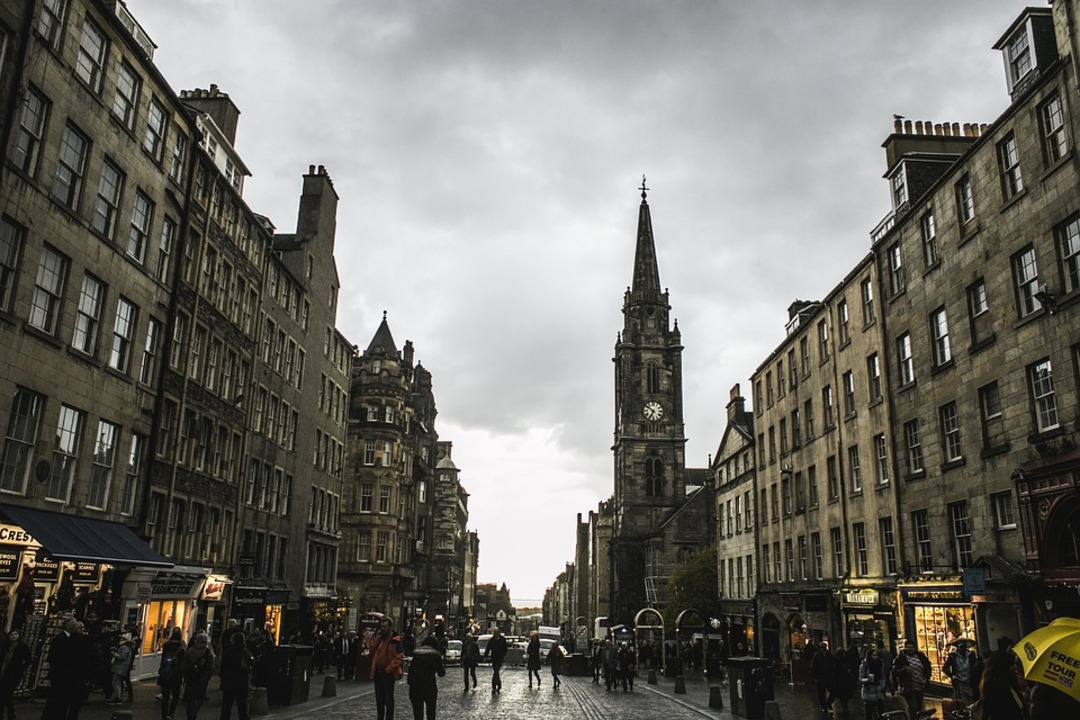-
Scotland to hold 2nd independence vote next October if Supreme Court backs it

Scotland will hold a second independence referendum on Oct. 19 next year if the Supreme Court allows it, First Minister Nicola Sturgeon announced on Monday (Oct 10), according to the Anadolu Agency.
Speaking at her Scottish National Party (SNP) conference in Aberdeen, Sturgeon said the Supreme Court will consider whether the current law allows the Scottish Parliament to legislate for an advisory referendum.
She added: “If Westminster had any respect at all for Scottish democracy, this court hearing would not be necessary. But Westminster has no such respect.”
Sturgeon had previously vowed to hold a second referendum by the end of 2023.
She told the conference that "Scotland has got what it takes to be a successful, independent country," adding that her government will publish papers making the economic case for independence.
Sturgeon said the Westminster government has delivered more austerity and hardship, sending “hundreds of thousands” into poverty. She said: "It is chaos and catastrophe.”

In a lengthy speech, attacking both the Conservatives and the opposition Labour Party, Sturgeon said Labour was "willing to throw Scotland under [former Prime Minister] Boris Johnson's Brexit bus" on their way to Westminster.
She said that "We need Scotland's independence to fix the problem," namely the Westminster government.
Scotland freezes rents and rail fares to ease cost-of-living
The central UK government has constantly rejected the idea of a new referendum on Scottish independence, repeatedly saying that Scots made their choice in a 2014 referendum.
However, Sturgeon has argued that circumstances have changed with Brexit, with Scotland dragged out of the EU against its will as 62% voted to remain part of the bloc in 2016.
The first referendum that asked Scottish voters whether they would want to break free from the UK was held in 2014, two years before the historic EU referendum.
Scotland becomes first country in the world to provide free feminine sanitary products
The government under then-Prime Minister David Cameron pledged better understanding for Scots from Westminster and “extensive new powers” for the Scottish parliament.
The SNP, the party which led the independence campaign, had full confidence that the country would survive and even be better off outside the UK, strengthened by the nation’s oil fields in the North Sea, world-famous malt whiskey, textile, jet engines, and various banking and financial services.
But Scots rejected separation from the rest of the UK, as just over 2 million votes (55.3%) were cast to remain part of the kingdom, while 1.62 million (44.7%) people voted for independence.
Source: aa
You May Also Like
Popular Posts
Caricature
BENEFIT Sponsors BuildHer...
- April 23, 2025
BENEFIT, the Kingdom’s innovator and leading company in Fintech and electronic financial transactions service, has sponsored the BuildHer CityHack 2025 Hackathon, a two-day event spearheaded by the College of Engineering and Technology at the Royal University for Women (RUW).
Aimed at secondary school students, the event brought together a distinguished group of academic professionals and technology experts to mentor and inspire young participants.
More than 100 high school students from across the Kingdom of Bahrain took part in the hackathon, which featured an intensive programme of training workshops and hands-on sessions. These activities were tailored to enhance participants’ critical thinking, collaborative problem-solving, and team-building capabilities, while also encouraging the development of practical and sustainable solutions to contemporary challenges using modern technological tools.
BENEFIT’s Chief Executive Mr. Abdulwahed AlJanahi, commented: “Our support for this educational hackathon reflects our long-term strategic vision to nurture the talents of emerging national youth and empower the next generation of accomplished female leaders in technology. By fostering creativity and innovation, we aim to contribute meaningfully to Bahrain’s comprehensive development goals and align with the aspirations outlined in the Kingdom’s Vision 2030—an ambition in which BENEFIT plays a central role.”
Professor Riyadh Yousif Hamzah, President of the Royal University for Women, commented: “This initiative reflects our commitment to advancing women in STEM fields. We're cultivating a generation of creative, solution-driven female leaders who will drive national development. Our partnership with BENEFIT exemplifies the powerful synergy between academia and private sector in supporting educational innovation.”
Hanan Abdulla Hasan, Senior Manager, PR & Communication at BENEFIT, said: “We are honoured to collaborate with RUW in supporting this remarkable technology-focused event. It highlights our commitment to social responsibility, and our ongoing efforts to enhance the digital and innovation capabilities of young Bahraini women and foster their ability to harness technological tools in the service of a smarter, more sustainable future.”
For his part, Dr. Humam ElAgha, Acting Dean of the College of Engineering and Technology at the University, said: “BuildHer CityHack 2025 embodies our hands-on approach to education. By tackling real-world problems through creative thinking and sustainable solutions, we're preparing women to thrive in the knowledge economy – a cornerstone of the University's vision.”
opinion
Report
ads
Newsletter
Subscribe to our mailing list to get the new updates!






















